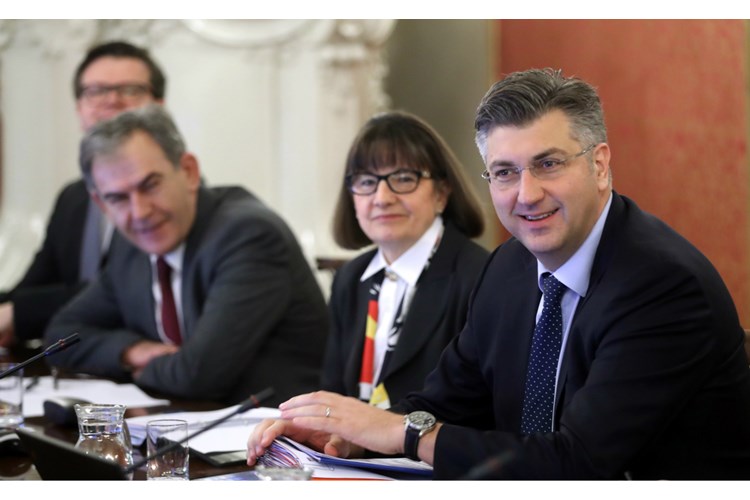


"We must transfer to new generations the understanding of the tragedies of systematic violations of human rights during undemocratic regimes in the 20th century," Prime Minister Andrej Plenkovic said at the government's meeting.
Croatia, just as many other European societies, is still experiencing the repercussions of the legacies of authoritarian regimes in the 20th century and there are still different interpretations of the past which are not always based on scientific research, Plenkovic said.
Furthermore, the existing judicial and administrative practice regarding the public display of symbols of authoritarian regimes is not standardised.
"The Council has been founded to tackle those challenges," said the premier.
The starting point for the council's debates will be to make it clear that Croatia distances itself from any form of totalitarianism.
"Although it seems to be primarily engaged in dealing with the past, the Council is also oriented towards the future," Plenkovic said.
The council is expected to make recommendations for cherishing the culture of remembrance, scientific research, defining a policy for naming streets and squares, enabling the access to archives and educating children about how the rights and freedoms were violated during the rules of authoritarian regimes.
In this context, Plenkovic recalled that his cabinet had condemned all recent incidents such as "shameful posters in Vukovar", and a march of the non-parliamentary party AHSP in Zagreb that promoted Ustashism and Nazism contrary to the fundamental values of Croatia's constitutional order.
The council will be headed by the chairman of the Croatian Academy of Sciences and Arts(HAZU), Zvonko Kusic, and some of other prominent members are Antun Vujic, Ivo Lucic, Ante Nazor, Natasa Jovicic, Ivo Goldstein, and some other intellectuals, professors, historians and law experts.
Text and photo: Hina